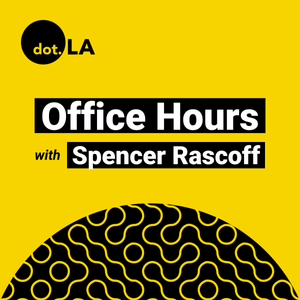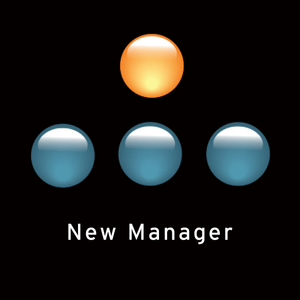
TLP107: On Responsibility: Patagonia’s Chief Storyteller & Director of Philosophy
07/18/18 • 44 min
1 Listener
Previous Episode

TLP106: Strengthen Trust in Less than a Day
In this episode, Jim and Jan talk about the Urban Team Challenge: What it is, how it came about, how it’s different from other team builders, and the special type of people behind it. The goal is to sharpen your team’s ability to communicate, delegate appropriately, overcome adversity, and leverage strengths. Key Takeaways [2:34] In our business and personal lives, most of us are on multiple teams, and several outlets where we are working both together and independently towards a common goal. The Urban Team Challenge targets skills that may be applied in any situation, whether it’s a manager leading employees, or CEO in charge of dozens of managers. [3:15] Jan recalls a podcast episode he listened to recently where a Jayne Poynter recalls her challenges from Living in Biosphere 2. First was running out of oxygen, but a close second was the interpersonal dynamics surrounding her. This demonstrates how important it is for those to work together efficiently in team dynamic. [6:11] At a recent Urban Team Challenge in Atlanta, they saw first hand how it can shift team members from an individual mindset, to one team working together for a common goal. [11:25] Both Jim and Jan recap their takeaways from the recent Urban Challenge. They feel the most important were the experience of effective communication in a time of chaos, reducing stress with good planning and adapting, cohesion between the front facing and behind the scenes parts within a team, and fully understanding standard operating procedures and expectations up front. [15:14] When team members get fatigued and taxed, it is important for them to speak up so another in the group can take the lead. It’s also important for the group to examine the implicit assumptions they make. For example, if there are two men in their 50’s standing outside a college bookstore, instead of going for the assumption that they should stand away from each other and act engaged in their cell phone, it actually might be better for their appearance of fitting in and acting “normal”, to stand and have a conversation together. [17:17] For a strong team dynamic and successful collaboration, trust is key. Instagram: Facebook: Twitter: Website: YouTube: Email: Quotable Quotes “In a chaotic situation, you need to depend on effective communication.” “It’s hard to create alignment, and most of us are conflict avoiders, and this is an exercise to bring that all out in a hurry.” “We create an understanding of what it is like to work as a team.” No one ever says, “We over communicated.” “Every team benefits from ground rules that can be adjusted along the mission.” “In order to have good communication, you need trust and open dialogue.”
Next Episode

TLP108: Look Up From Your Toes
In this episode, Jim and Jan take it full circle and start with their takeaways on responsibility from a recent episode with Patagonia’s Chief Storyteller & Director of Philosophy, Vincent Stanley. Then, they both share stories of early in their career where they could have benefitted from a little more forethought, and follow up with some great news about the podcast and friends surrounding it. Key Takeaways [2:24] Jim and Jan discuss their admiration of both Patagonia as a company, and Chief Storyteller as a leader. The episode demonstrated how respect and responsibility merge when a leader steps up to take the time, slow down, and do things right. Jim’s takeaway from the episode was the manner in which Vincent’s reasoned and rational approach lends Patagonia to implement and change hearts and minds. Vincent’s book, The Responsible Company, provides a guide for those at any level of business to operate more responsibly, thoughtfully and self-aware. [8:35] Patagonia puts people in line with the cause, whereas many passionate people tend to put the cause in front of the people. They maintain their responsibility to the cause and the outcome while still serving the traditional stakeholders, customers and vendors. [12:22] Patagonia is trying to plan ahead for the next 40 years, while many businesses are planning for the next quarter. The tendency for short sightedness may lead to missed opportunities. [14:04] Jim and Jan share their personal “bonehead” moments. Jim’s starts with a job interview in Detroit that leads him accidentally on a plane headed to White Plains, New York. Jan’s is a dinner party at the Colonel’s house where he accidentally missed the mark on the formal part of semi-formal. Quotable Quotes “Too many times people are so passionate about a cause that they are over-passionate, it makes it seem like an insurmountable goal.” “What is your impact on other people?” “ A short sighted mentality can blind you from opportunities.” “A leader’s job is to have a long horizon, and look out for a bright future ahead.” Instagram: Facebook: Twitter:
If you like this episode you’ll love
Episode Comments
Generate a badge
Get a badge for your website that links back to this episode
<a href="https://goodpods.com/podcasts/the-leadership-podcast-168254/tlp107-on-responsibility-patagonias-chief-storyteller-and-director-of-9170487"> <img src="https://storage.googleapis.com/goodpods-images-bucket/badges/generic-badge-1.svg" alt="listen to tlp107: on responsibility: patagonia’s chief storyteller & director of philosophy on goodpods" style="width: 225px" /> </a>
Copy




